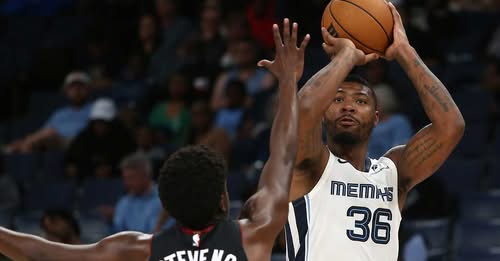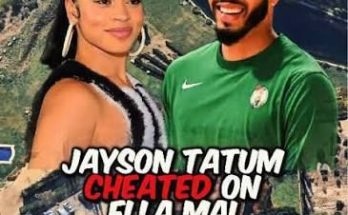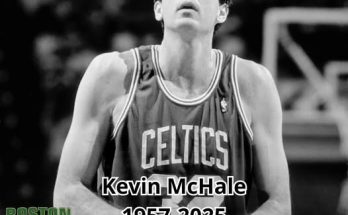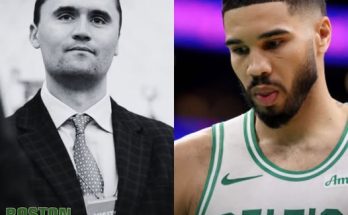The NBA offseason is always ripe with rumors and potential blockbuster trades that can reshape the league’s landscape. Among the most recent swirling whispers is a fascinating revelation about the Miami Heat and their decision-making in a trade scenario involving Marcus Smart and Terry Rozier. According to sources close to the league, the Heat were presented with an opportunity to acquire Marcus Smart in a deal that would have sent Terry Rozier the other way, but Miami ultimately passed on the trade. This choice has since stirred up conversations among fans, analysts, and insiders alike, raising questions about the Heat’s strategic vision, their roster priorities, and how this decision fits into their broader plans for contention.
Marcus Smart, the Boston Celtics’ tenacious guard, is known for his defensive intensity, leadership, and clutch playmaking. Over the years, Smart has carved out a reputation as one of the best defensive guards in the NBA, capable of guarding multiple positions and disrupting opponents’ rhythm with his grit and basketball IQ. His ability to hit timely shots, especially in high-pressure playoff moments, adds value beyond his defensive prowess. Smart’s experience as a leader on a contender team like Boston makes him a coveted asset for franchises aiming to build or maintain championship-caliber rosters.
On the other hand, Terry Rozier has blossomed into a dynamic scorer and playmaker in his own right. The guard has steadily improved his offensive game, demonstrating the ability to create his own shot, stretch defenses with his shooting, and run an offense effectively. Rozier’s role with the Celtics expanded significantly in recent seasons, and he has proven capable of shouldering heavy offensive responsibilities. While he may not have the defensive tenacity of Smart, Rozier’s offensive upside is appealing to teams looking for scoring punch and versatility in the backcourt.
The reported trade scenario involving these two players was intriguing because it seemed to offer Miami a chance to add an elite defensive and leadership presence in Marcus Smart while sending out Rozier, whose offensive skills might be less critical to the Heat’s current system. The Heat have traditionally built their identity around disciplined defense, physicality, and toughness. Adding someone like Smart, a proven defender and vocal leader, could have been a natural fit for Miami’s culture under head coach Erik Spoelstra and president Pat Riley. It’s no secret that the Heat value character and effort highly when assembling their roster, and Smart’s relentless competitive spirit aligns well with that ethos.
Despite these compelling factors, the Heat declined to pursue the trade, opting to retain Terry Rozier. Several factors likely influenced this decision. First, Rozier had been an important contributor to the Heat’s offense. His scoring ability, especially in clutch moments, added a critical dimension to Miami’s attack. The Heat’s system often relies on versatile wings who can create their own shot and stretch the floor, and Rozier fits this mold well. Additionally, the Heat’s backcourt includes other strong defenders and versatile players, meaning that losing Rozier for Smart might not have yielded a clear upgrade across the board.
Secondly, salary and contract considerations often play a significant role in trade decisions, and this deal likely had complex financial implications. While both Smart and Rozier are valuable players, their contract situations and the salary cap mechanics could have presented hurdles. Miami has been known for careful cap management and flexibility to retain core players and pursue free agents. If the trade jeopardized that flexibility or disrupted the roster balance in ways that could hurt long-term planning, it would be a sensible reason to pass.
Moreover, Miami’s roster construction is unique in the sense that their stars, like Jimmy Butler and Bam Adebayo, play integral roles on both ends of the floor. The Heat emphasize a system-based approach that values player fit and role clarity over simply acquiring star names or headline-grabbing trades. Rozier’s offensive skill set may have been viewed as more complementary to Miami’s stars and existing style of play, while Smart’s defensive prowess, though elite, might not have been seen as necessary enough to warrant the switch.
This decision highlights the complexity of NBA roster building in the modern era. Teams must balance talent, fit, financial considerations, and long-term goals when evaluating trades. Even when a trade involves two players of roughly equivalent value, the subtleties of team chemistry, playing style, and strategic vision can tip the scales decisively. The Heat’s choice to keep Rozier over acquiring Smart indicates a commitment to maintaining their current offensive structure and perhaps a belief that their defensive foundation is already solid enough.
Another angle to consider is the Celtics’ perspective and how this trade talk reflects their own evolving roster strategy. Boston has undergone several changes in recent years, including the addition of key pieces like Jayson Tatum and Jaylen Brown, and now the incorporation of new talent and veterans. Marcus Smart’s value in Boston goes beyond his on-court contributions; he embodies the team’s toughness and resilience. Trading him away, even in exchange for a player like Rozier, would signal a shift in identity that the Celtics might have been reluctant to make. This also indicates why the trade talks might have involved a complex negotiation, as Boston would likely want fair compensation and the right fit in return.
The Heat’s passing on this trade also fuels speculation about their future plans. Are they looking to double down on their current roster, trust in player development, or perhaps explore other trade avenues? Miami has been active in the trade market in past seasons, and Pat Riley is known for his sharp instincts in assembling championship teams. Passing on a high-profile trade opportunity suggests confidence in their existing core and a patient approach to roster moves.
For Terry Rozier, staying with the Heat means continuing to play an important role in a team with strong playoff aspirations. Rozier’s offensive capabilities will be essential in relieving some pressure off Jimmy Butler and Bam Adebayo, providing scoring punch and secondary playmaking. Rozier’s ability to heat up offensively can be a game-changer in tight playoff contests, and Miami’s system will look to maximize those strengths. His chemistry with the team and familiarity with Erik Spoelstra’s coaching methods also adds intangible value that is hard to quantify.
Marcus Smart, meanwhile, remains a critical piece for the Celtics. Although trade rumors often swirl around stars, Smart’s importance to Boston’s defensive identity and locker room leadership cannot be overstated. His presence on the floor sets the tone for the team’s competitive spirit, and his ability to guard multiple positions fits well with Boston’s versatile defensive schemes. While the Celtics continue to build around their young stars, Smart’s experience and toughness offer stability. Should another trade opportunity arise, Smart’s name will undoubtedly come up, but for now, he remains a Celtics cornerstone.
Looking ahead, this rumor serves as a reminder of the intricate chess game that NBA front offices engage in during the offseason. Trades that seem obvious on paper don’t always materialize because of the many layers of evaluation and strategy that go into such decisions. It also underscores the importance of fit over pure talent acquisition, with teams weighing how each player fits into their system and culture before making bold moves.
The Heat’s decision to pass on acquiring Marcus Smart in a trade involving Terry Rozier highlights the team’s thoughtful approach to roster management. Rather than chasing headline-grabbing moves, Miami appears committed to maintaining roster balance, preserving financial flexibility, and trusting in their current personnel’s ability to compete at a high level. This choice might not grab immediate headlines, but it speaks volumes about how the Heat operate behind the scenes — with a focus on long-term success and sustainable competitiveness.
Meanwhile, the Celtics continue to navigate their own path, balancing the need to evolve their roster with preserving the core identity that has brought them to the brink of championship contention. The Smart-Rozier trade talks might be shelved for now, but the fluid nature of the NBA offseason means such rumors will continue to emerge, keeping fans and analysts engaged in the ever-changing saga of player movement.
In summary, the Miami Heat’s decision to decline a trade involving Marcus Smart for Terry Rozier underscores the complex considerations that drive NBA trade decisions. It’s not merely about talent swapping but about team fit, financial implications, and strategic vision. While both players offer unique strengths, Miami’s choice reflects confidence in their current lineup and a commitment to their established playing style and culture. As the NBA offseason progresses, these subtle but significant decisions will shape the league’s competitive landscape, proving once again that building a contender is as much about what you choose not to do as what you do.



